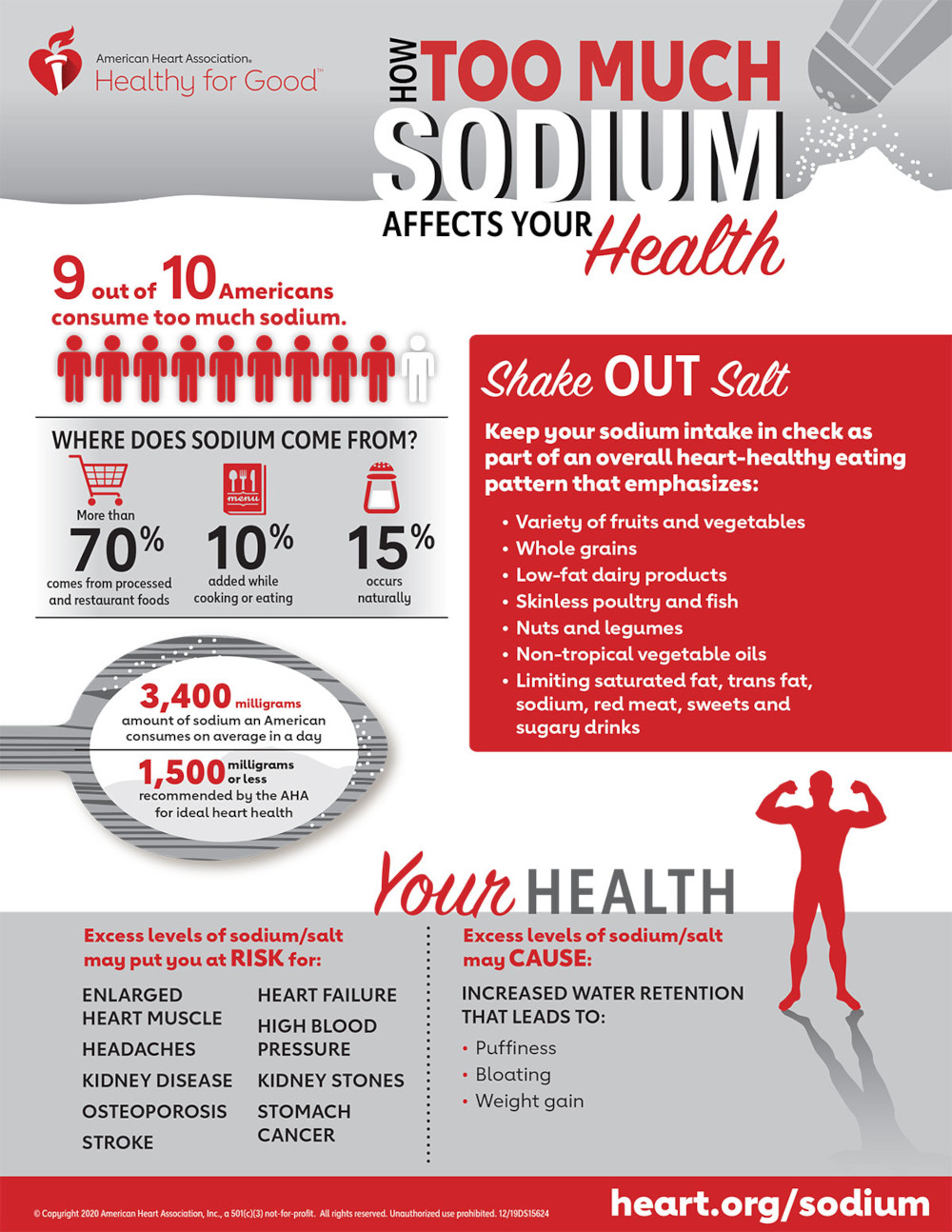Salt has many functions as many of us use it to season our food and brine our meats for flavor and preservation. More importantly, salt serves as a natural regulator for our body to function properly, specifically our muscles and nerves.
It’s estimated that the average person needs about 500mg of sodium per day for our body to function properly but most Americans consume about 3400mg of sodium which is about 6 times the necessary amount.
Where are people consuming the most amount of salt?
When it comes to natural foods like grains, fruits, and vegetables, there is naturally a low amount of sodium in these foods. It is rarely the case that you are over seasoning your meals with too much salt.
The main foods you have to worry about are processed foods and of course fast food. Think chips, pizza, burgers from fast food chains, and cold cut meats.
What happens when you eat too much salt?
When we consume too much sodium, our bodies struggle to process the excess amount. That means our body works extra hard to dilute the sodium to maintain a healthy ratio for our kidneys to process it all.
When more fluid is retained in the body than necessary, it means that there is a larger volume of blood in our bloodstreams. Over a large period of time, it can increase the risk of high blood pressure that can lead a stroke, heart failure, heart attack, and kidney stones.
Everyone’s body will react differently to the amount of sodium they intake and some may have a higher “tolerance” to a high sodium diet. While studies don’t show a direct correlation to cardiovascular disease with a high sodium diet, we do know that high blood pressure can often lead to strokes and heart failure. Here is an article from the Harvard Public School of Health explaining the further health complications a high sodium diet can lead to.
Originally published at The American Heart Association
How to reduce your salt intake?
Many people will assume that reducing your salt intake means seasoning your food less and sacrificing flavor in your meals. But the most effective way is to start lowering the number of processed foods you eat whether it be eating out or sitting on the couch eating a whole bag of chips.
When you eat more home-prepared meals you’re less likely to be intaking excess sodium as you’re able to control how much you’re eating, know exactly what is in the food you eat and control the amount of salt and seasoning added.
There are many alternatives that serve as good substitutes and you can now find many products labeled as “Low Sodium”. When you’re out grocery shopping, look to find foods that say “Low Sodium”.
Wrap things up
Too much sodium in your diet can lead to short-term and long-term health effects. In the short term, you may be affected by bloating, weight gain, and a rise in blood pressure.
Over a longer period of time, a high sodium diet might put you at risk of cardiovascular diseases, chronic kidney diseases, and possibly stomach cancer.
Not everyone will be affected or react to high salt intake the same but it is clear that the average American consumes much more than the body needs to function properly. Drink plenty of water and cut out some processed foods in your diet. It will greatly reduce the risk of any long term health effects.




